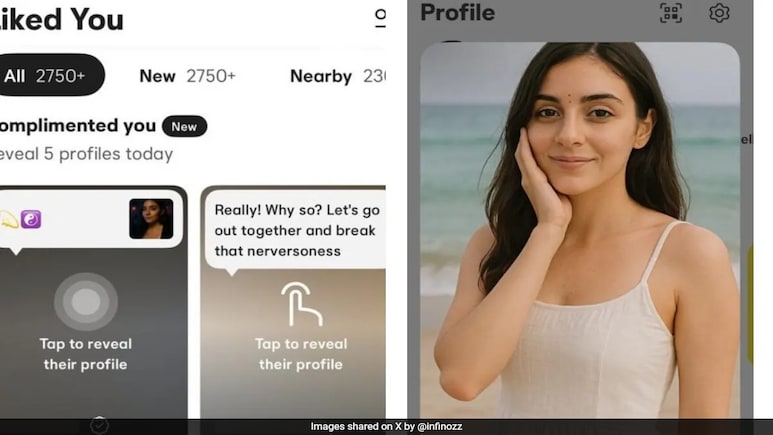A social media user recently shared a disturbing experiment he conducted using artificial intelligence (AI) to create a fake profile on Bumble, a popular dating app. The user, @infinozz, revealed that he used OpenAI’s GPT-4o image generation tool to create ultra-realistic images of a woman and set up a fake profile in Bengaluru. Within just two hours, the fake profile garnered over 2,700 likes and at least 100 right swipes, with multiple compliments from unsuspecting users.
The Experiment
The user shared that his initial intention was to simply test the capabilities of ChatGPT’s new image generation tool. “I got bored and decided to play with ChatGPT’s new 4o image generation tool. Made some super realistic AI-generated pics of a girl. Then came the evil idea: ‘Why not make a Bumble profile in Bangalore with it?’, and then…” he wrote in his X post. The fake profile’s sudden popularity was staggering, with the user’s phone receiving constant notifications. “My phone literally had a seizure, tun tun tun tun every second,” he wrote, adding, “Guys offered me ice-creams, concert tickets, and what not. Men loneliness epidemic? Nah, it’s a full blown apocalypse.”
Consequences and Reactions
The experiment raised serious concerns about the safety and security of dating apps. The user revealed that it took approximately 12 hours for Bumble to detect and remove the fake profile. He described the overall experience as “scary” and noted that if he had actually matched with someone, he could have potentially manipulated them into sending gifts or money. “Imagine if I actually matched someone and got them to send food, gifts, or pay rent lmao,” he wrote. The post sparked a heated discussion online, with many users expressing concern about the ease with which the fake profile was created and the potential for catfishing.
Online Discussion
One user commented, “Ethically shaky, technically wild. Feels like catfishing 2.0 meets a Black Mirror pilot.” Another user expressed concern about the fact that it took Bumble 12 hours to shut down the fake profile, questioning the algorithm used to detect such profiles. The discussion also touched upon the broader issue of loneliness and the dynamics of dating apps. “This is not just about AI – it’s a stark reflection of the demand-supply gap in dating apps. It’s 80-20 out there,” expressed one user. “Remember, dating apps are designed to keep you hooked. The odds of finding genuine love there are far slimmer than in real life,” said another.



